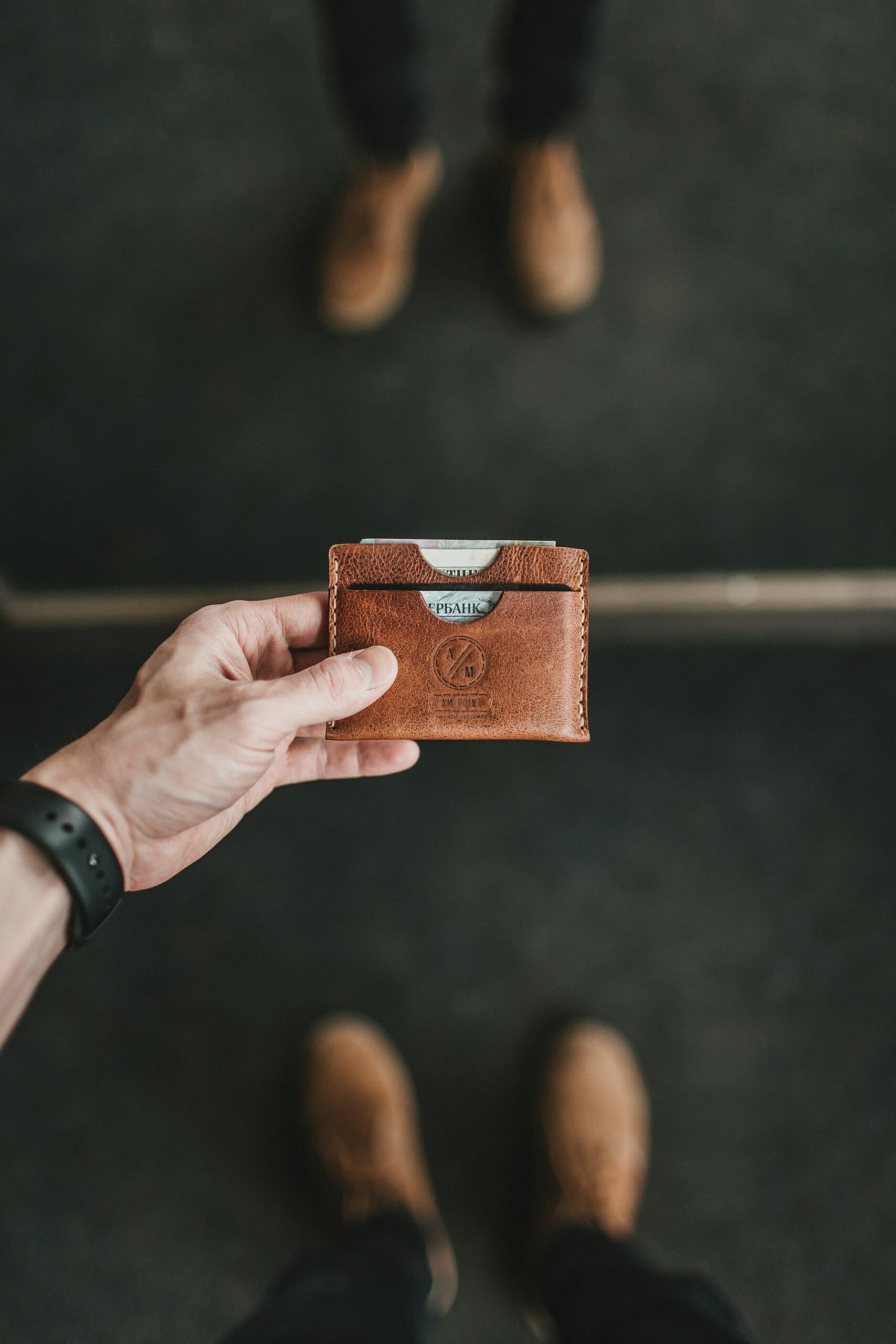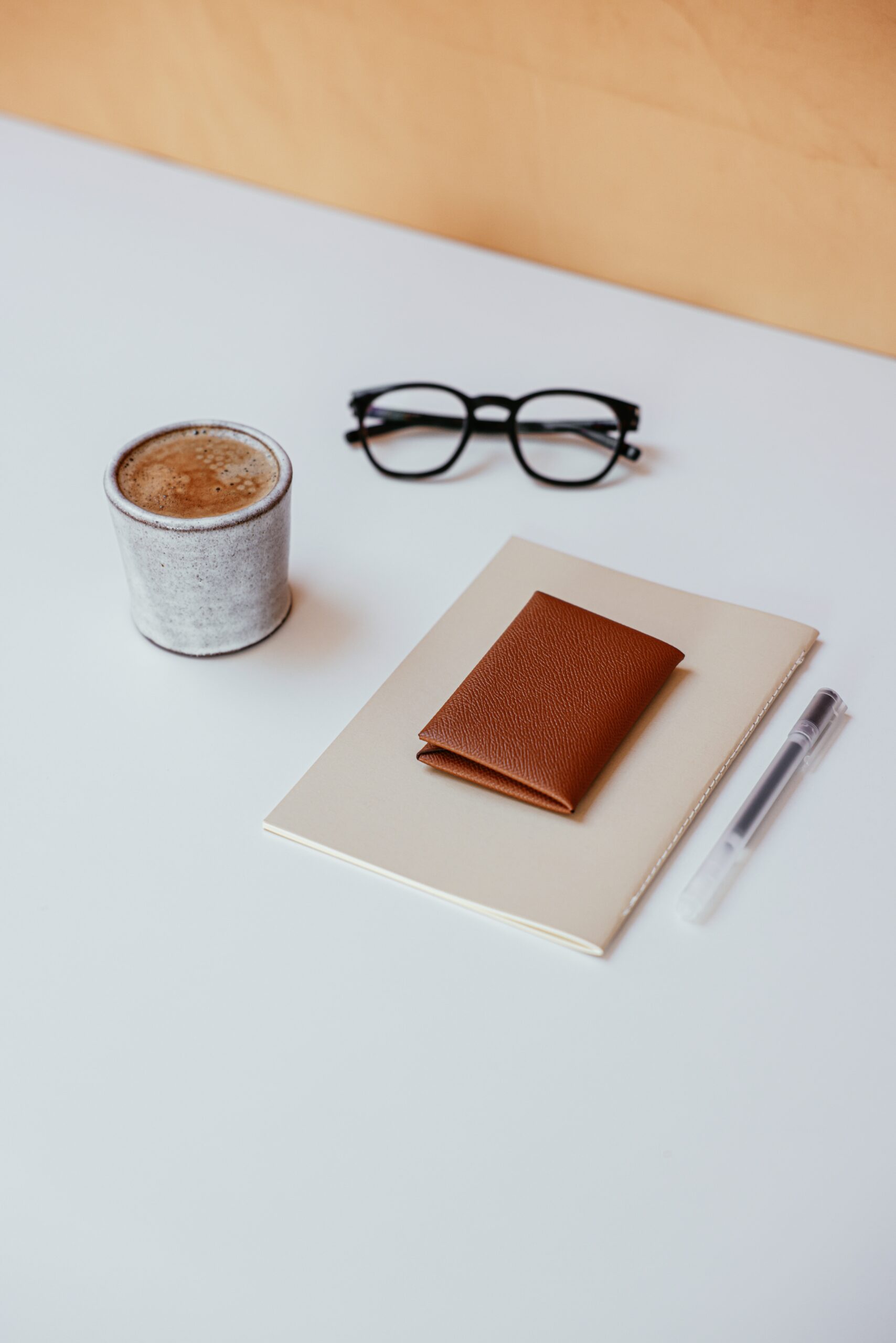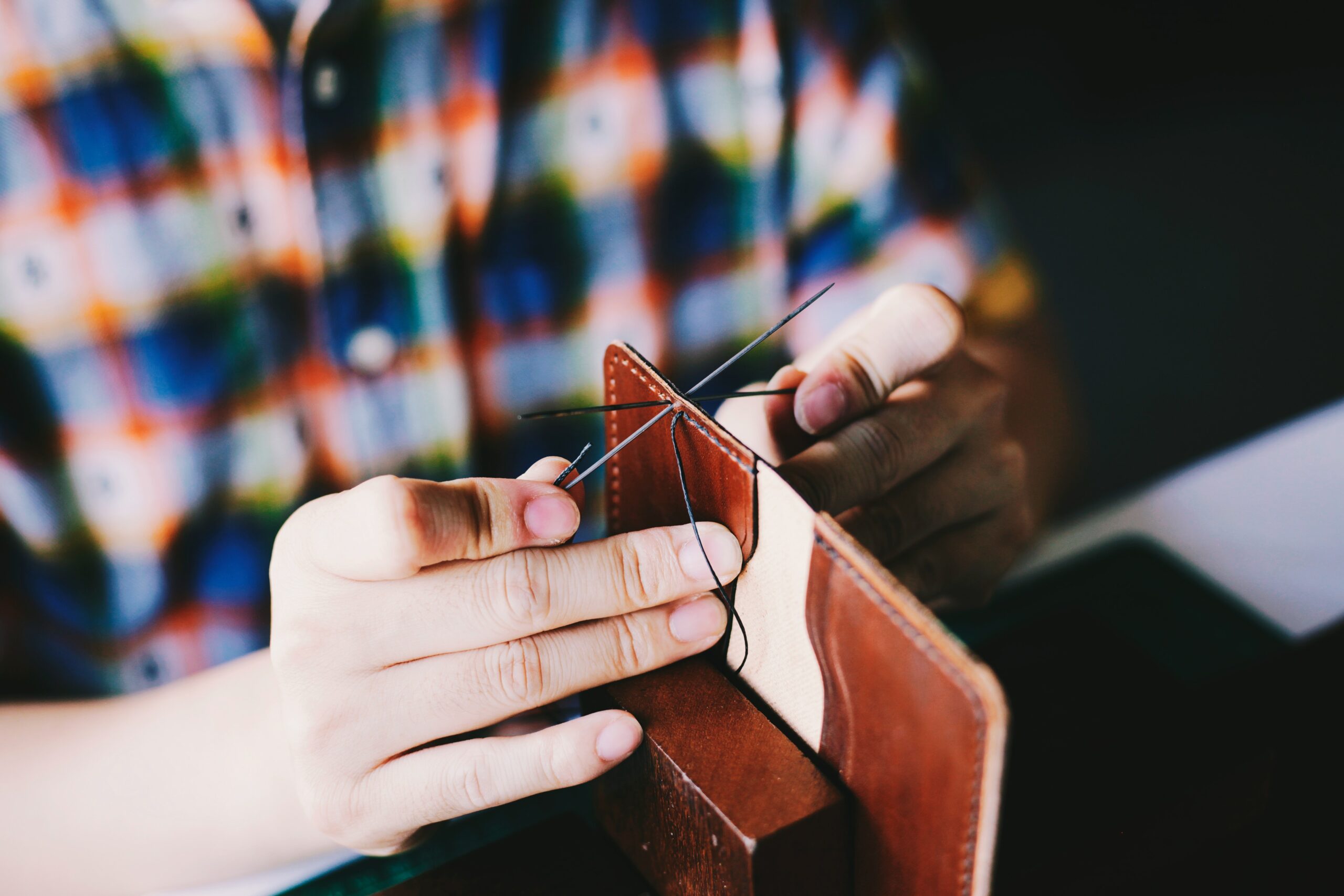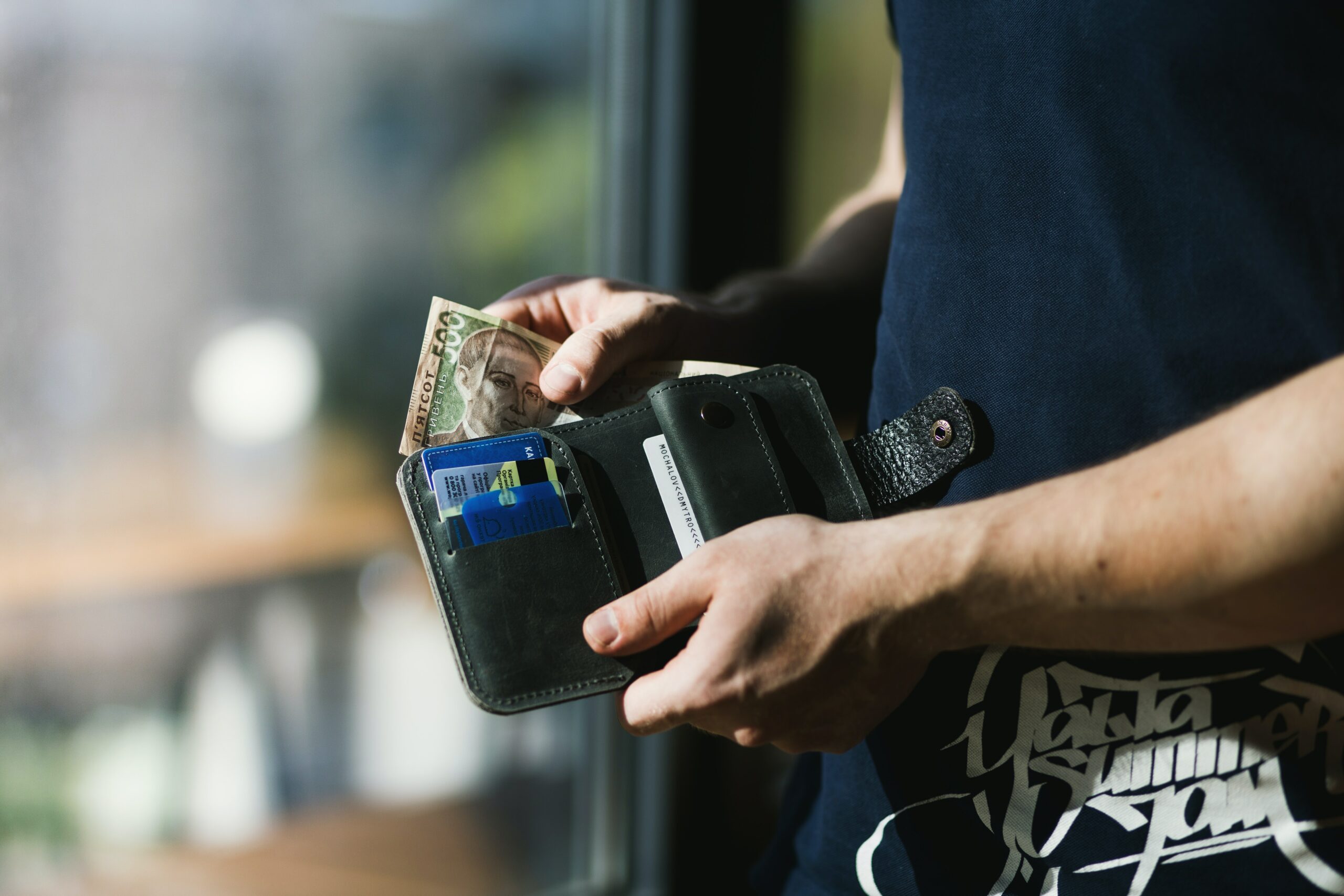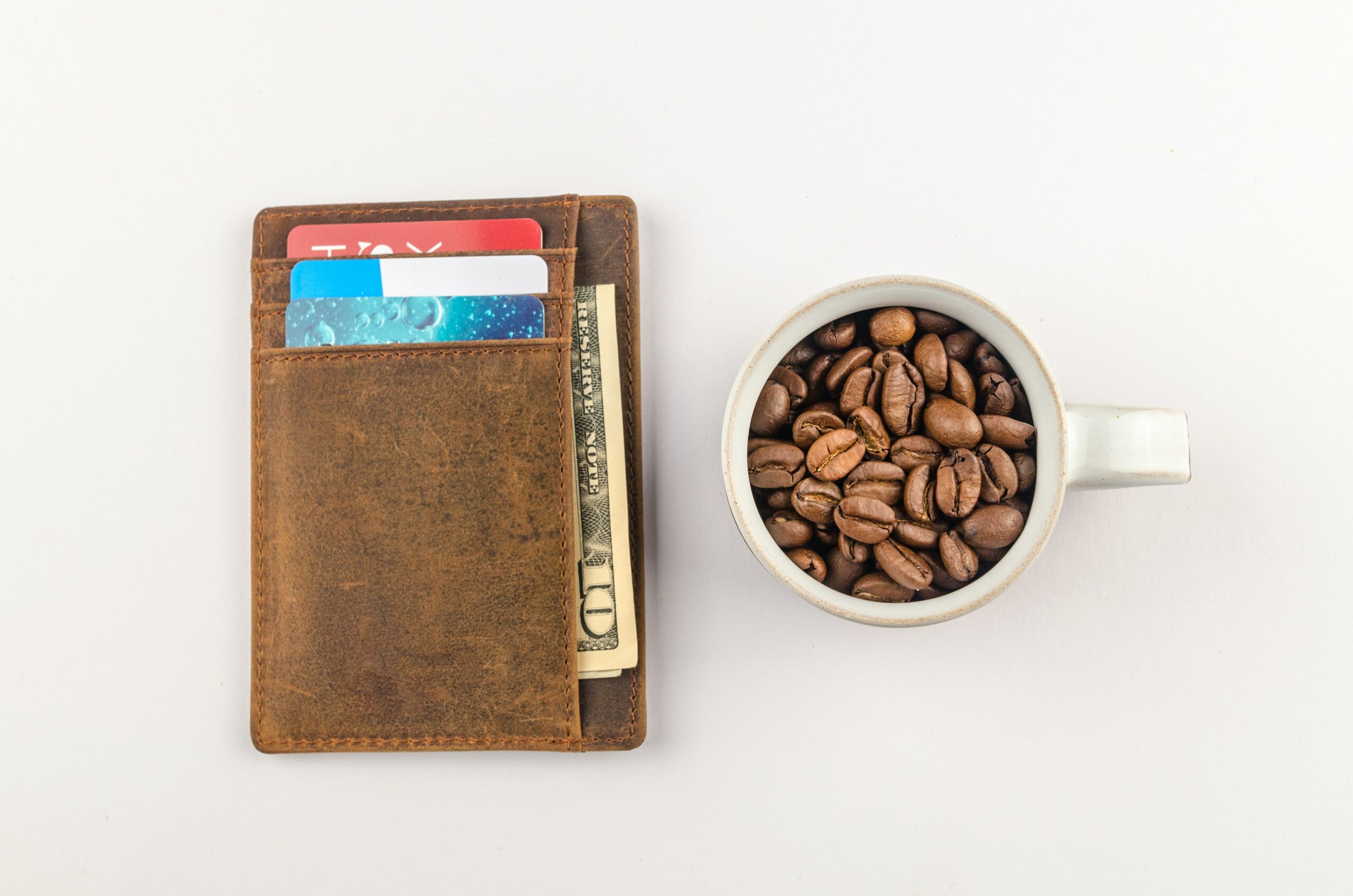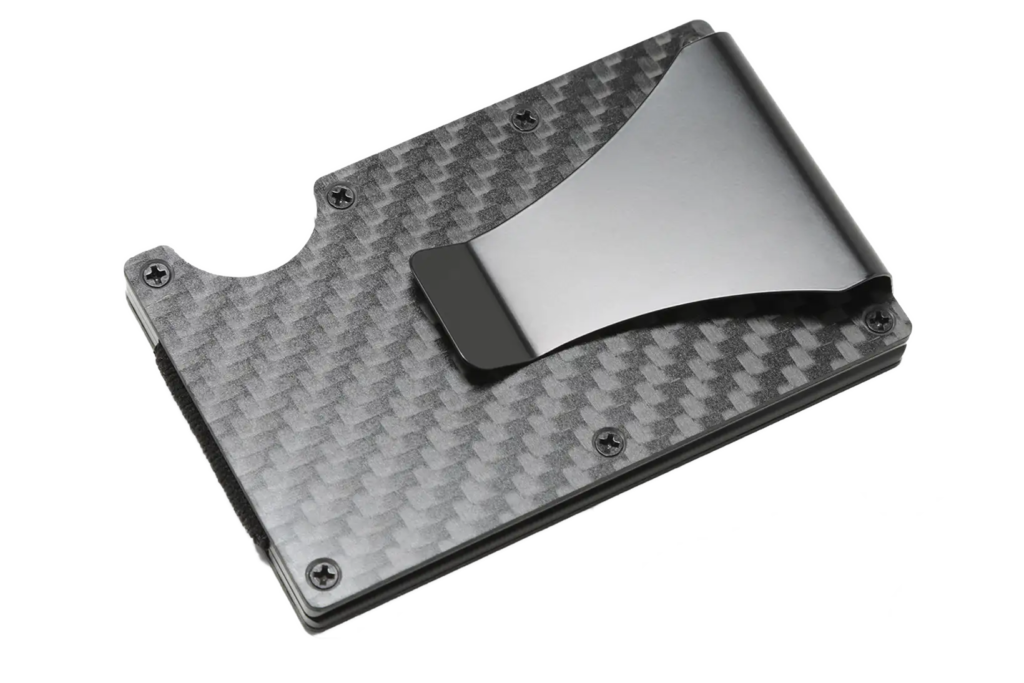I remember my grandfather’s wallet clearly: aside from the necessary IDs, it was full of photos of his grandkids, old receipts, business cards he had accumulated, and notes he had jotted down. It was a veritable treasure trove of information about him and his life. Times have changed, and keeping an over-stuffed wallet is no longer the norm, nor is it wise. I’ve compiled some helpful guidance if you’re wondering what to include in your wallet.
The modern gentleman’s wallet is slim, minimalistic, and functional. It contains only the necessities: identification, payment means, and insurance proof.
In this post, I’ll explain how and why you should pair down the contents of your wallet.
Guiding principle
The guiding principle for selecting what to keep and remove from your wallet is very straightforward: keep it minimal. Carry what you will likely need daily or in ordinary situations, but don’t carry anything unnecessary.
Streamlining your wallet contents conveys that you have a degree of personal discipline and organization. Moreover, it is easier on your back, and it reduces your exposure to the risks associated with identity theft.
Identification
If you are a driver, you need to carry your driver’s license. If you don’t drive, you still need to have a government-issued photo ID since it is required for flying, renting equipment, buying alcohol, and entering certain establishments, such as bars, clubs, casinos, etc.
Don’t carry unnecessary identification
While you need to carry one government-issued ID, never have an additional one unless necessary. For example, if you are military or other government personnel, carry whatever card is required by your position. But never carry your social security card or any document containing your social security number. This is the single-most essential form of personal data sought by identify thieves, and even the Social Security Administration advises against carrying it with you.
Special licenses and IDs
If you hunt or fish, especially regularly or at the drop of a hat, it may be worth carrying the relevant license. However, since these activities usually require special equipment (a rifle, shotgun, tackle, etc.), keeping your license in the secure location where you store your gear is better. If you have difficulty remembering to grab your license when you head out, keep it with you. The possibility of paying a poaching fine if caught without your license outweighs other considerations.
The same goes for a work ID. It is worth stowing it in your wallet if you tend to forget it. But if you can keep it elsewhere — for example, in a briefcase, folio, or computer case — there’s little reason to carry it in your wallet.
Debit and credit cards
In the spirit of minimalism and security, only carry one bank or debit card and one credit card. If you have to choose between carrying an extra credit or debit card, opt for the credit card. In many cases, fraudulent bank or debit card charges will not be reimbursed or reversed immediately. By contrast, fraudulent purchases made to a credit card are protected, and you don’t need to cover them during the process of an investigation.
It’s worth shopping around for a bank card. Some offer valuable advantages, such as reimbursing fees levied at ATMs.
Backup cash
For convenience and to avoid frustration, it’s helpful to have some backup cash on hand.
While it is increasingly rare, some restaurants remain cash-only establishments, and credit card machines sometimes go offline or are out of service.
I also recommend using cash when buying drinks at a bar. There’s no need to take advantage of an “open tab” offer. Leaving your credit or debit card with anyone — even a bartender at a trusted establishment — unnecessarily opens you to risk: you may forget it, it could be misplaced, given to the wrong patron, or so on. Use cash when buying drinks and avoid exposure to these risks.
For most men, $50 is often sufficient to cover unexpected situations where cash is required, and an ATM isn’t accessible. A combination of two $20 notes and smaller bills will prove more useful than a $50 bill, but it adds bulk. See what works for you in light of the other items you need to carry.
Also, gauge your level of risk when deciding how much cash to carry. You want enough to avoid an embarrassing or frustrating situation in which a card doesn’t work. However, you don’t want to carry so much that it attracts attention or would constitute a profound loss if your wallet is lost or stolen.
Insurance and health cards
Health and vehicle insurance cards are a must. If you’re in an accident or have the misfortune of being pulled over, it is necessary to have these with you. Doing so will prevent the possibility of being billed and then having to manually submit an insurance claim or pay a fine.
A business card
You never know when you might run into a potential client or prospective employer, so keep a business card with you. Be sure to check it every once in a while to ensure it is still crisp and clean, and replace it if it becomes worn or tarnished.
What to avoid
I’ve already mentioned that you shouldn’t keep your social security card. There are, however, some other, less obvious, things to avoid carrying:
- Receipts. Receipts often contain sensitive information, including at least some of the digits from your credit or debit cards and, in the case of ATM receipts, your account balance.
- Anythingprovidingbackgroundinfo. Certain information, such as your mother’s maiden name, children’s names or birthdays, etc., are often used as security questions for online accounts. Don’t carry anything that indicates such information.
- Pictures. It used to be that wallet photos were the go-to way to show off kids and grandkids. Now that you can easily access a lifetime of photos on your phone, there’s no reason to add unnecessary bulk to your wallet. Leave any printed photos in an album or on your fridge.
- Membership cards. Almost all membership programs allow for ways to indicate your membership without carrying a physical card, even if one is issued to you. For example, libraries can usually look up patron information using a state-issued ID. Unless a membership card is necessary, leave it at home. In the case of a gym membership, could you keep it in the bag you take with you?
- Rewardsprogramcards. Most rewards programs issue a physical card but don’t require that you present it. Store-specific rewards programs can usually be accessed by looking up the associated phone number; in many cases, a smartphone app is available. More often than not, signing up for a rewards program isn’t worth it anyways, but if and when it is, see if there are alternatives to carrying a card.
Final words
Your wallet is primarily a functional accessory. It would be best if you didn’t use it to carry evidence of your life story or pack it full of things that serve to reflect your personality.
In reality, only one other person besides yourself would be interested in closely examining its contents: a thief. Please don’t make it easy for them to steal your identity.
Recommended reading
Learn more about Karbone Wallet
Learn more about how you pick a good wallet.

